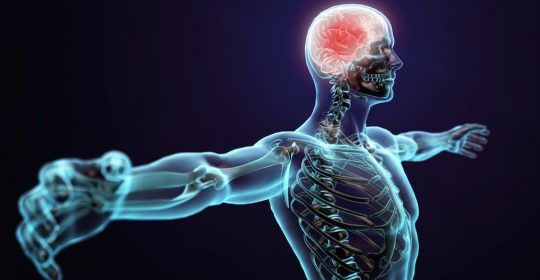
Common Nervous System Disorders
There are over 400 types of nervous system disorders that neurologists are able to diagnose after a series of tests and procedures. Nervous system and brain problems are quite common and can include Multiple Sclerosis, Parkinson’s Disease, Strokes and more.
The nervous system is a complex network that organizes, explains and directs interactions between you and your surroundings. The nervous system is made up of two major divisions:
- Central nervous system, consisting of the brain and spinal cord
- Peripheral nervous system, consisting of all other neural elements, including peripheral nerves and autonomic nerves
What does the nervous system do?
The nervous system controls many aspects of daily life:
- Voluntary and involuntary functions which include movement, balance and coordination
- Regulation of blood flow and blood pressure
- Sight, hearing, taste, smell and feeling
What are some of the disorders of the nervous system?
Disorders of the nervous system may include:
- Vascular disorders such as subarachnoid hemorrhages, subdural hemorrhages, extradural hemorrhages, strokes, hematoma and transient ischemic attacks
- Meningitis – an infection of the membranes that surround the brain and spinal cord
- Encephalitis – the inflammation of the brain
- Epidural abscess – pus and germs that form between the outer covering of the brain and spinal cord
- Polio – a virus that infects the spinal cord and causes paralysis
- Structural disorders such as brain or spinal cord injuries
Disorders of the nervous system can also cause functional disorders such as headaches, dizziness, neuralgia and epilepsy. Nervous system disorders can also cause degeneration in the forms of Parkinson’s disease, multiple sclerosis, Alzheimer’s disease, ALS and Huntington’s chorea.
Signs and symptoms of nervous system disorders
There are common signs and symptoms of a nervous system disorder that patients will face. These include:
- Persistent headaches or a sudden onset of a headache
- Feelings of numbness or tingling
- Weakness
- Loss of muscle strength
- Memory loss
- Lack of coordination
- Double vision or loss of sight
- Limb pains that can spread to other parts of the body
- Muscle wasting
- Slurred speech
- Language impairment
However, symptoms of a nervous system disorder may also look like other medical conditions and it is always advisable to seek care from a medical professional for a proper diagnosis.
Diagnosing nervous system disorders
There are a number of tests and procedures needed in order to diagnose disorders of the nervous system. Patients will go through the traditional x-ray, along with a specialized x-ray called Fluoroscopy. This x-ray examines the body in motion and the blood flow through arteries.

